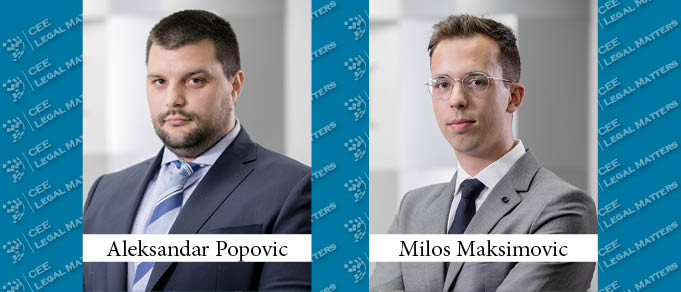Despite being one of the most turbulent periods in the history of the mankind, 20th century represents one of the brightest spots in the evolution of technology. Except for the general enthusiasm in all branches over the industry, the second half of the century has been fertile when it comes to executing some revolutionary ideas.
In the late 50s, an American scientist, a member of the team that worked on the development of the first nuclear bomb, has created something yet unseen, something that will be recognized as one of the fastest growing industries in the years to come.
In October 1958, physicist William Higinbotham created what is thought to be the first video game - ‘’Tennis for Two’’. It was a very simple tennis game where two people played the electronic tennis game with separate controllers that connected to an analog computer and used an oscilloscope for a screen. One could say this game was a distant relative of the ever-growing gaming world we know today, and a predecessor of an arcade machine created by a group of college students from the University of Utah and Stanford University in 1971. The game was called ‘’Computer Space’’, and it is considered to be the very first arcade video game. Built in a fiberglass case, the simplistic space shooter game was hailed a success and the first commercial arcade video game had been made.
Many years later, the gaming market was valued at approximately USD 198 billion in 2021, and it is expected to reach a value of far more with a not so rough estimation of USD 304 billion by 2027, thus, making it the most lucrative podium for all players exploring this, although virtual, but financially very real environment which impacts the markets worldwide. Gaming has become one of key-players within the so-called creative industry, among other members such as music, film, animation, TV show and it only awaits explosion of potential in near future.
Creative industries are a significant sector in the Serbian economy as well, with a share between 3.4% and 7.1% of GDP and are growing faster than the rest of the economy. This sector consists of over 30,000 registered economic entities, employing more than 115,000 workers, almost 70% of whom are between the ages of 25 and 44. In the gaming segment, the success of domestic participants in the gaming industry is undeniable, as confirmed by the recent acquisition in Serbia worth EUR 390 million, in addition to another one in the region, with a total value of as much as one billion euros.Although the Serbian law does not provide comprehensive and encompassing regulation for gaming industry separately, it is of crucial both legal and commercial impact to assess existing provisions of various acts regulating the basics of this industry, including its creation, production, transfer, assignment, distribution of rights and its financial exploitation. Law on Copyright and Related rights (‘’IP Law’’) regulates the rights of authors over their work of authorship. The IP Law defines work of authorship as an original spiritual creation of the author, expressed in a certain form, regardless of its artistic, scientific or other value, its purpose, size, content and manner of expression, as well as the permissibility of public announcement of its content. An author is a natural person who created copyright work and is presumed as holder of rights over the work enjoying moral (non-transferable rights) and property (transferable) rights over his work of authorship from the moment of creation of the work pursuant to the Article 8 of the IP Law. However, apart from the author himself, the holder of rights can be other person or entity, if they acquired the copyright in accordance with the IP Law.
The Article 2 of IP Law stipulates that the following shall be deemed works of authorship, and in particular: i) written works (e.g. books, brochures, articles, translations, computer programs in any form of their expression, including their preparatory design material and other); ii) spoken works (lectures, speeches, orations, etc.); iii) dramatic, dramatic-musical, choreographic and pantomime works, as well as works originating from folklore; iv) works of music, with or without words; v) films (cinema and television); vi) fine art works (paintings, drawings, sketches, graphics, sculptures, etc.); vii) works of architecture, applied art and industrial design; viii) cartographic works (geographic and topographic maps); ix) drawings, sketches, dummies and photographs; x) direction of a theatre play.
Having in mind the provisions of the IP Law, it is an easy conclusion that the game itself is a work of authorship, given the existence of an appropriate software is a precondition for compiling a game. Moreover, the games are most often created as a product of teamwork with an individual contribution from several persons whereby the complex work of authorship is created. The IP Law defines co-author as a natural person who has created a work based on creative engagement with another person. Co-authors are joint holders of the copyright on a work of authorship, unless otherwise provided by the IP Law or by an agreement governing their mutual relations, meaning that the distribution rights therein can be regulated differently (for example by the agreement).
Several technical aspects should be considered essential and eligible for the game authorship, such as developing new algorithms and approaches, designing interfaces, writing and creating software, finding proper test cases for software with a known behavior, etc. Apart from technical, other creative contributions to the production of games can be no less significant, such as design, drawings, sketches, graphics, musical works and other spiritual creations necessary to create a complex author's work.
Given the complexity of the game-creation process, it is of great importance to assess the legal standpoint and how the rights would be distributed between the creators of authorship, who would be deemed author and/or co-author of the creation, to what extent the co-authors have the exploitation rights and under what conditions, and so on. There are no exact guidelines on awarding authorship over individual’s contributions to the created game, and, as to which type of contributions can qualify for authorship at all and where to draw the line. Hence, the best possible legal way of creating the game is if rights are downright regulated especially when the creation is taking place within the employment relationship, where the holder of material copyright over software is the employer, unless otherwise provided in the employment contract or employer’s rules of procedure. Therefore, it is necessary to address many different legal aspects prior to creating games e.g., when drafting the agreement for video game development, publishing agreements, as well as with video game distribution agreements, in order to properly exploit its commercial value.
Setting the environment for games production is also crucial for industry where many different points of legal assessment need to be properly carried out, such as the general regulatory aspect and compliance, website Terms of Use, terms and conditions, Privacy Policies and Cookies. Moreover, and with an ever-rising popularity of online gaming, it is necessary to keep proper pace with regulation and maintain compliance from consumers’ standpoint, especially the children’s compliance, game merchandise’s regulation, eCommerce, data protection and GDPR, as well as the general IP protection when it comes to games branding (including the protection and enforcement of copyright, patents, trademarks, design protection and other intellectual property rights). Oftentimes, it is required to assess licensing of music and sound recordings rights when creating a specific game, as well as all other accompanied IP rights needed.
In conclusion, game-production process contains different creative, intellectual, legal and other aspects, but for those investing financially in gaming industry, the most vital element is commercial value of the game itself. Therefore, it is mandatory to set all in order when it comes to proper IP rights, distribution and potential exploitation, with a notion that a game represents a work of authorship, hence, is suitable for licensing, transfer/assignment and other commercial use, which should be regulated accurately with various agreements, given there isn’t specific law related to the gaming industry apart from the general legal acts such as the Law on copyright and related rights.
On the other hand, when perceiving the game industry in broader picture and as an innovation, it is worth mentioning the Law on Innovation Activity (“Law’’) which entered into force on 5 January 2022. The goal of the Law is to improve conditions for the development of innovation activities and integration of the innovation system of the Republic of Serbia into the European Research Area and the Innovation Union. The most important compartments brought by the Law, related to gaming industry, are innovation subjects (‘’startup’’ and ‘’spinoff’’) and investors in innovation activities (‘’business angels’’).
The Law defines innovative subject as a company, other legal entity, part of a legal entity, entrepreneur, natural person, or group of natural persons that develops innovations, i.e., places its own or other people’s innovations on the market or in use. Innovative subjects, among others are: i) startup – a newly founded company or entrepreneur developing an innovative product or service with a potential for rapid and large growth; ii) spinoff – a startup founded by an existing legal entity with the goal of developing and commercializing innovations; iii) business angel - investor in an innovation activity who invests financial resources in a startup. The Law also defines subjects of the innovation infrastructure as legal entities, whose key role is to create an environment for cooperation between science and economy, providing innovation subjects with professional, administrative, logistical and other support to develop, put into use and place their innovation on the market. Such support may be, for example, organization of support for startups – a company/entity whose predominant activity is implementation of support programs for startups, as well as making available business space, professional, administrative, technical and other services to startups, with the aim of developing innovative activities.
It was undeniable intention of the legislator to establish a suitable environment for attracting investments in startups, which are often the initial point in the development of games and other elements of the creative industry, which improves the environment for their later commercial exploitation and affects the entire market. However, the question remains whether the current legal framework is sufficient for the profitable development and exploitation of games. This is primarily due to the lack of specific regulations that would regulate the gaming industry in detail, and due to the complexity of the entire process, which among other things, requires a serious approach to the legal aspect by engaging experts from the appropriate legal fields (IP and IT law) to overcome possible negative consequences and difficulties on the way to achieving creative goals. For now, it seems that with professional legal support, the existing legal framework is more than enough for all participants to get the most out of everything that the creative industry has to offer. What is expected to follow is more detailed legal regulation as a response to everyday situations in practice, with the acquisition of knowledge and strengthening awareness of this profitable virtual world, which is continuously growing and pushing the (virtual) boundaries we know.
By Aleksandar Popovic, Partner, and Milos Maksimovic, Senior Associate, JPM Jankovic Popovic Mitic


